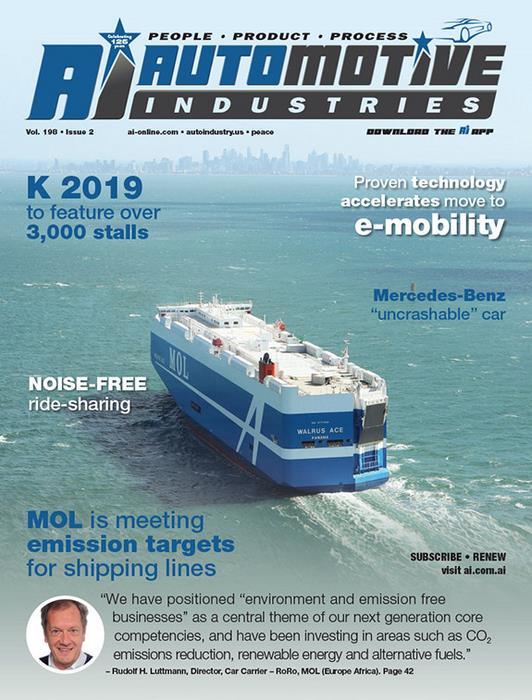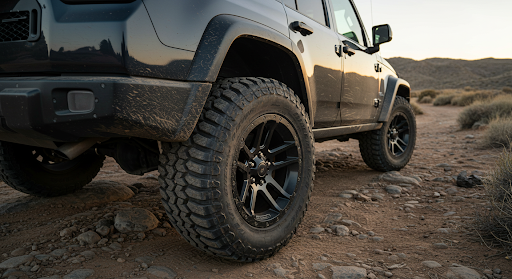
Shipping lines have formed a number of partnerships and alliances ahead of the January 2020 deadline for the International Maritime Organization’s rules for reducing the sulfur emissions from ocean-going vessels.
From January 2020, the IMO will ban ships from using fuels with a sulfur content (SOx) above 0.5%, compared with the current 3.5%. Only ships fitted with sulfur-cleaning devices known as scrubbers will be allowed to continue burning high-sulfur fuel. As a result, demand for LNG as bunker fuel is expected to grow on a global scale. Singapore’s Maritime and Port Authority (MPA) is focusing considerable effort on development of an LNG fuel supply infrastructure and implementing policies aimed at creating the world’s largest LNG fuel supply port. At present Singapore is the world’s largest fuel supply port. One of the first major private sector initiatives to support the MPA is the signing by Japanese shipping major Misui O.S.K. Lines (MOL) of a long-term charter contract to operate Asia’s largest (12,000m3-class) LNG bunkering vessel in Singapore with Pavilion Gas (PGPL), a wholly-owned subsidiary of Pavilion Energy.
MOL launched the first car carrier to meet the needs of Japan’s burgeoning automobile export trade in 1965. Since then, the group fleet has grown to 120 vessels, in step with the market’s globalization. The capacity of the first PCCs was around 1,200 automobiles. “Today’s pure car and truck carriers (PCTCs) accommodate all types of vehicles, from passenger cars to construction machinery. PCTCs can transport 6,800 standard passenger cars at once. In addition, MOL takes a proactive stance in reducing the environmental impact of its vessels, adopting designs that limit the effects of wind resistance and introducing solar power generation systems,” says the company.
Pavilion Energy is a wholly-owned subsidiary of Temasek with a fully integrated energy business that encompasses upstream investments, global LNG trading, shipping and optimization as well as energy hedging and financial solutions. Its whollyowned subsidiary, Pavilion Gas, is responsible for the marketing and distribution of natural gas in Singapore and the region, including smallscale LNG and LNG bunkering initiatives. MOL and PGPL are building a cooperative structure in the private sector to help shipping lines meet the emission targets.
They have teamed with Sembcorp Marine Specialized Shipbuilding, a subsidiary of Singapore-based Sembcorp Marine Group, for construction of the vessels and Sinanju Tankers, which is a major bunker barge company, as the ship management partner. The new vessel will be the second LNG bunkering vessel in Singapore and is due to start services after its delivery to PGPL in early 2021. The Japanese government has signed memorandums of understanding (MOIs) for cooperation on the development of LNG as a marine fuel with seven other countries, including Singapore. Since the signing, Japan and Singapore have been working closely together to promote the use of LNG fuel and develop a supply framework. MOL established its Bunker Business Division in April 2017 with the aim of speeding up progress on the introduction of alternative bunker fuels such as LNG. It is establishing a global presence facilitated in part by the MOIs.
In February 2018 MOL signed a long-term charter contract for the world’s largest (18,600m3- class) LNG bunker vessel with Total Marine Fuels Global Solutions. The vessel will offer services in northern Europe. In April 2019 the line’s LNG-fueled tugboat Ishin started operations in Osaka Bay, Japan, where it is operated by the Nihon Tug-Boat Company. MOL-operated car carriers are known by their flagship name MOL Auto Carrier Express (MOL ACE). According to Junichiro Ikeda, President & CEO of MOL, the company has developed a strategic response to stricter regulations on SOx emissions.
“We have a daunting list of things to do-complete the technological verification of compliant fuel oils, properly time the changeover from current fuels, secure a supply of compliant fuel and negotiate with business partners and customers, to name just a few. “This is a big challenge for the ocean shipping industry, but I think this is a good opportunity to differentiate our businesses at the same time. We will come up with counterplans ahead other companies, soundly implement our plan to switch to compliant fuel, and operate our vessels safely, without interruption, even after the regulations take effect.
This seems like simple common sense, but realizing our plans hinges on the formulation of efficient operation plans by those in charge of vessel operations and excellent negotiation skills on the part of account representatives, as well as marine technology and engine expertise,” he said in a speech to mark the 135th anniversary of the founding of the company.
Automotive Industries (AI) asked Rudolf H. Luttmann, Director, Car Carrier –Ro/Ro, MOL (Europe Africa), how the line is going to reduce its sulfur emissions in compliance with the IMO 2020 rules.
Luttmann: We have already started switching and will be operating under a mixed fuel portfolio in our fleet that includes regulation compliant fuel (VLSFO), scrubbers, and other sources of fuel such as LNG. We have agreed with a large portion of our stakeholders, including customers, that the additional costs that may arise from this regulatory change are an investment in the environment. There is agreement that the costs should be shared and not all shouldered by the shipping companies, as expecting the lines to absorb all the expense may threaten the industries sustainability.
AI: How have you prepared for the new emission limits?
Luttmann: In general, the deadline promoted us to accelerate the development of alternative fuels and to introduce ICT solutions and hardware development such as “PBCF” (propeller boss cap fin) to reduce fuel consumption.
AI: Tell us a little about how MOL has made the future environmental orientation of the company a top priority?
Luttmann: We believe that developing the current and sustaining the future environment is not just our social obligation, but closely linked to the future of shipping. In 2017 we published the “MOL Group Environmental Vision 2030” to proactively tackle our social obligations including the reduction of greenhouse gas (GHG) emissions. We have positioned “environment and emission free businesses” as a central theme of our next generation core competencies, and have been investing in areas such as CO2 emissions reduction, renewable energy and alternative fuels.
AI: What does this mean for your customers – especially your automotive customers?
Luttmann: Automotive customers have a keen interest in environmental issue, especially CO2 emission reduction. MOL developed the wind resistance-reducing car carrier “Courageous Ace,” which received the Ship of the Year in 2003. In 2012 we introduced the hybrid car carrier Emerald Ace which is fitted with a 160kW solar generation, resulting in zero emissions while berthed. From 2918 we started replacing our car carriers with the next-generation “FLEXIE” vessels. Through research and development, we are continuing to reduce car carrier emissions.
AI: Please tell us more about the FLEXIE carriers.
Luttmann: The FLEXIE series marks a major advance in functionality, with six liftable decks, which enables us to more effectively meet the potential demands of customers to transport a more diversified mix of vehicles, including high and heavy cargo. The rounded bow shape reduces wind resistance, resulting in 2% fewer CO2 emissions than conventional designs. The first “FLEXIE” vessel, the “Beluga Ace,” has received the “Ship of the Year 2019” award from the Japan Society of Naval Architects and Ocean Engineers (JASNAOE). There are four of the vessels on the water.
AI: How will the new emission rules impact bulk shipping?
Luttmann: The challenge with relatively older vessels is that the investment in scrubbers may not be recouped during the remaining design life of the ship. At MOL we see this as a business opportunity. We differentiate ourselves by using the new regulations to improve our relations with customers, while providing clean and efficient transportation.


More Stories
Automotive Industries (AI) Newsletter April 2025
How to Create the Ultimate Off-Road Vehicle Garage: A Practical Guide
GlobalLogic Pioneering Software-Defined Vehicles, AI Innovation, and Sustainable Solutions for the Future of Automotive Mobility